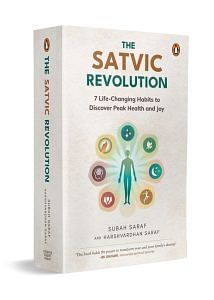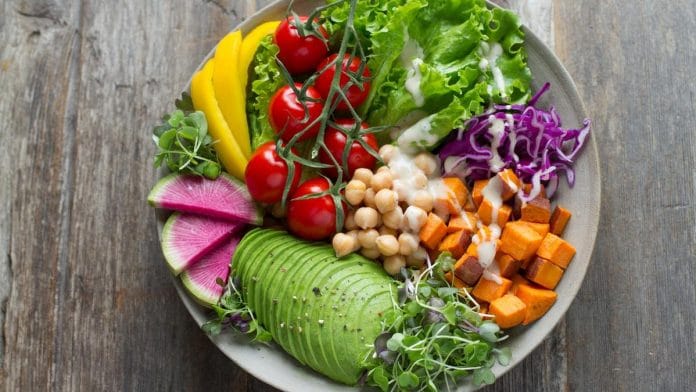Chimpanzees, when they fight, often mend their relationship with each other with a kiss. Pigs, while sleeping, love to cuddle up close to one another, nose to nose. To greet other pigs whom they know, they rub noses with them, much in the way we humans would shake hands. In the 1990s, a fascinating study was conducted by animal scientist Stanley Curtis. He trained pigs to play a video game using a joystick. Impressively, these pigs not only mastered the game but also progressed from one difficulty level to the next.
Sheep, on the other hand, display an astonishing memory. They can recognize and remember human faces for years. They are also known to form strong maternal bonds with their lambs. Lambs, especially when they are young, are quite playful and can be seen frolicking, jumping and racing around fields—much like children in a playground.
Hens have a world of dreams as vivid as those of dogs and cats, marked by their rapid-eye movement (REM) sleep. Not only that, one of the sweetest things you’ll ever hear is a mother hen chirp to her unborn chicks, and the chicks chirp back from within the egg! They also make around thirty different calls to communicate with each other, expressing everything from ‘thanks for the food!’ to ‘there’s a threat in the coop!’
Fish, though they are most distant from us, have fascinating social lives. They talk to each other with sounds, body movements and chemical signals that we can’t even see. And believe it or not, some fish choose one partner and stick with them for life. Together, they protect their home and help each other out when danger comes near.
You might be wondering why we’re delving into the world of animals in a book centred on health and joy. It’s because there’s a prevailing notion that animals might not have the same depth of feelings as we do. Some might even say they’re ‘dumb’ or ‘emotionless’ creatures who do not feel things. But is that truly the case? Could it be that they, too, are sentient beings? With a capacity to feel and perceive?
I understand this is a polarised topic and views can widely vary, but my heart says that they are not the unintelligent beings that society may have led us to believe. Sure, they may not be as intelligent as us, but it’s clear that they experience many of the same emotions, bonds and feelings that we do.
How Does Death Feel?
Just as animals feel pleasure and joy, they also experience pain and terror. When we conducted research on this topic, we came to understand the lives of these animals. In the next few paragraphs, we would like to share some details. While it may be uncomfortable to confront the entirety of their reality, we will share just enough for you to be informed.
Everything we mention has been extensively written about and is covered in various videos online.
In a factory farm, animals are trapped in small cages or enclosures, where they are barely able to move. They have to pass faeces at the same place where they sleep and spend their days. Here, they’re also pumped with artificial growth hormones, pushing them to grow unnaturally large. Why? You may ask. The larger they are, the greater the yield of meat, and consequently, the higher their market value.
Once they grow large enough, they are loaded on trucks and transported to slaughterhouses. When the truck arrives at a slaughterhouse, the animals don’t even get off the truck. Why? Because they know what’s coming next. They know that they’re headed towards their inevitable death. So, the workers often use electric sticks to force them out of the truck.
Some animals, such as pigs and cows, watch their peers die in front of them, increasing their anxiety as their own time comes near. Soon, when it’s their turn, they are shifted on to a moving belt and hung upside down (while they’re still conscious). From there, they see the bolt gun or knife approaching, ready to chop them into pieces. The mere thought of this scene can be deeply disturbing for many of us. But, in such a situation, what feelings do you think the animal goes through? Fear, terror, intense anger, pain, depression, and exhaustion. Isn’t it?
Once their flesh leaves the slaughterhouse, chopped up into pieces, it’s sent to the supermarkets and sold to us as food.
Is There Anything More to Food than Nutrients?
Is food all about calories, protein and nutrients? Or is there something more to it? Well, food is not something inert. Each food possesses a certain energy, a certain vibration.
Now, when we eat the flesh of tortured animals, not only are we ingesting the animal, but we are unknowingly also ingesting their stress, their fear, their exhaustion and the anger that they went through before they were killed. As we continue to consume this negative energy, over time, it manifests within us in the form of stress, agitation, violence and illness.
This is not to say that eating meat will make you unhappy or agitated, as there are many factors contributing to our mental health. However, it’s worth considering that your food has energy beyond its physical properties and nutrients. If the food comes from a place of pain and suffering, it may impact you in ways that are not immediately apparent.
There is an old adage in Indian culture: ‘Jaisa ann, waisa mann.’ This translates to, ‘As is your food, so is your mind’, suggesting that the nature of our food imprints upon our thoughts and emotions.
While you read all this, you may be feeling a whirlwind of emotions. That’s perhaps because we’ve all grown up with certain habits, traditions and beliefs surrounding our meals, and when these are challenged, it can disrupt the very foundation of our identity. In some of us, this can stir up a lot of sentiments, sometimes even provoking defensiveness or aggression, with every new detail prompting further questions.
It’s perfectly natural to feel such emotions when faced with such revelations. We’re all on our individual journeys, and it’s okay to take your time, process this information, and decide what feels right for you. Remember, you don’t have to change anything you don’t feel ready for.

This excerpt from Subah and Harshvardhan Saraf’s ‘The Satvic Revolution: 7 Life-Changing Habits to Discover Peak Health and Joy’ has been published with permission from Penguin Random House India.







Yet another vegetarianism imposition ploy under the garb of suave english but questionable logic. Plants can feel noxious stimuli too, albeit in a different manner as repeatedly shown by Dr Jagadish Chandra Bose. Why should the apparent sentience of animals be proclaimed superior to the electrochemical response in plants? Prevention of unnecessary cruelty is a noble endeavor but we do need food to live. Till we can survive on chemical pills or start photosynthesis, both exclusive vegetarian and mixed diet consumers have to content with food that was once alive. They may assuage their guilt with doubtful logic but the “negative vibrations” of plant genocide will seep into vegetarian diets too.